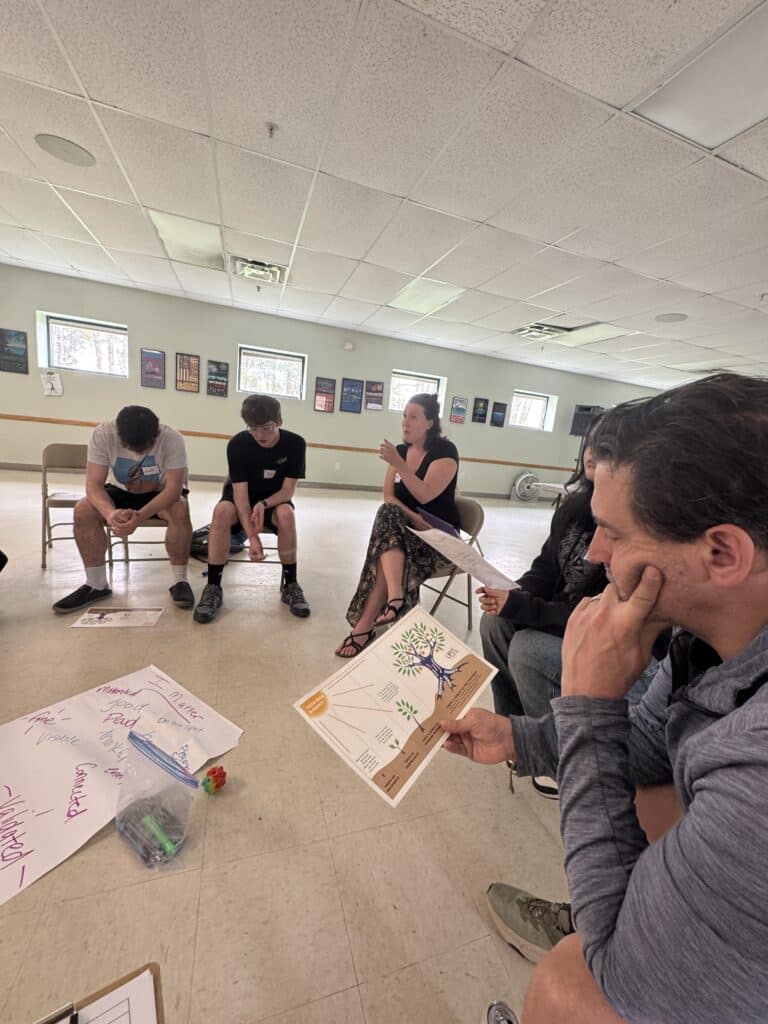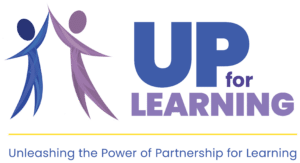
Eagle Bay Academy, a newly launched student-driven high school program within the Burlington School District, partnered with UP for Learning to implement a Youth Participatory Action Research (YPAR) process designed to center student voice and experience in shaping the school’s direction. Eagle Bay Academy was established with a vision: to offer experiential, project-based learning tailored for students who thrive outside conventional educational models. Located on the shores of Lake Champlain, the school prioritizes relevance, agency, and real-world application. Recognizing the need to ground this vision in lived student experience, Eagle Bay invited UP for Learning to facilitate a YPAR cycle during the spring of 2025. This collaboration reflects a growing commitment to authentic youth-adult partnership in institutional decision-making and program development.
The YPAR process was carried out through a series of four facilitated retreats. These sessions brought together a Core Team of students and adults from across the academy’s three “houses” to engage in reflection, data collection, and collaborative analysis. The project’s goals were to assess the strengths and challenges of the school’s first year, to amplify diverse student perspectives, and to co-create actionable recommendations for the 2025–2026 school year.
In the first retreat, participants explored the foundations of youth-adult partnership, establishing norms of trust, equity, and mutual accountability. Subsequent sessions introduced data collection and analysis tools, allowing students to gather insights from their peers through surveys, creative protocols, and group dialogues. The team then gathered data from their peers. The data set produced some powerful reflections and conversations.
The team identified a number of strengths of Eagle Bay Academy. Students pointed to strong teacher-student relationships, interdisciplinary learning opportunities, and the school’s integration of health and wellness into the curriculum. Students also identified concerns and areas they want to prioritize in the coming school year. The concerns included systemic challenges such as unclear organizational structures, limited academic flexibility, and inequitable assumptions about student capability. They expressed a strong desire for increased autonomy, more community-based learning opportunities, and improved access to resources. Repeated themes included the importance of being seen and heard as individuals, having greater responsibility in shaping their education, and fostering deeper connections within the school community.
The team then compiled the data and asked for the whole school’s input on what they should prioritize in the following school year through a “dotmocracy” protocol. The three opportunities for growth the school chose to prioritize are:
- Accountability and safety – creating a safe place for learning that is inclusive for all identities
- Increased academic challenge and more opportunities based on individual needs
- Restoring relationships when harm occurs
The team culminated their YPAR work this year with a presentation to staff where they led them through their YPAR process and dove into a root cause analysis around these three priority areas. The team will center this new data set when they start working on the priority areas next fall.
The work of this YPAR team will not only improve student outcomes but also advance the school’s mission of authentic, student-centered learning. This YPAR process and Eagle Bay Academy’s willingness to engage during their first year as a school demonstrates what is possible when institutions are willing to shift traditional power dynamics and center the voices of young people in decision making.

